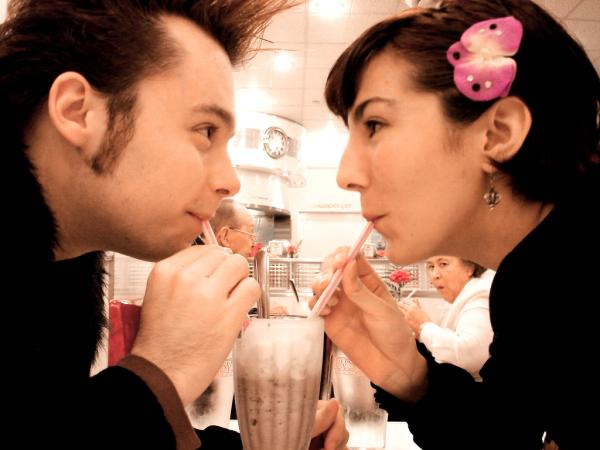Why we are attracted to some people and not others is a complicated question. Of course, the reasons are multifaceted. But, is there part of the equation that is purely biological?
Science says that there might be. No, it's not that pheromone-filled perfume that promises more romantic first dates. Although many animals (even mammals) use pheromones for social behavior, including mating, there is no evidence to date that humans use pheromones for anything, including sexual attraction. The reason lies in how pheromones are recognized by the body. Mammals use an organ called the vomeronasal organ (VNO) in their pheromone reception and, although humans have a VNO, it is not used for anything that we know of.
The biological part of our attraction lies in something called the major histocompatibility complex (MHC) or human leukocyte antigen (HLA) and the going theory is that opposites attract. Put another way, the more different our HLA types are from one another, the more likely we are to find each other attractive.
How can animals tell how similar or different their mates MHC complexes are? The answer may surprise you, but, its by using our nose. We know that humans are able to distinguish MHC types that are more or less similar to their own. Whether that actually relates to the choice of mates is another question, and one that a German research group decided to explore.
What is MHC?
MHC is an important and complicated part of our immune system. (1) One of the main functions of our immune system is to determine what parts of our body are ours (our own cells) and what parts are foreign and potentially pathogenic (for example, bacteria causing an infection.) MHC molecules serve this purpose as complexes located on the surface of cells.
It turns out that MHC complexes may do more than distinguish self from non-self. It may also be important for dictating who we pair up with. When given a choice, mice and sticklebacks prefer mates who have different MHC complexes when compared to their own. This is advantageous from an evolutionary point of view.
As far as humans go, it has been known for over twenty years that HLA similarity affects human body odor preference. But, mate choice? That still remains a question mark.
How did they test if MHC determines attraction?
A research group in Germany decided to test two factors in a group of 254 heterosexual couples ranging in age from 18 - 60 (with a mean around 25 years old.)
There were two parts of the study. First, participants submitted DNA for HLA typing. They also completed a questionnaire about their partner.
The questions on the survey were (given a scale from 0 to 10)
- “How satisfied are you with your partnership?”
- “How satisfied are you with the sexuality in your partnership?”
- “How attractive is your partners body odour to you (without perfumes, deodorant etc.)?”
- Also, participants stated whether they wanted to have (more) children with their partner (yes/maybe/no).
Separating the participants HLA types into three groups (class I, class II and class III) the researchers then scored the results comparing partners who had similar HLA types versus different HLA types.

As can be seen in the figure above, HLA types and immunologic compatibility make a difference in (1) partnership satisfaction, (2) sexual satisfaction, and (3) the wish to have children. In general, the people who were in a relationship with a partner with dissimilar HLA types were most satisfied.
The question of how much of a role HLA has in human attraction is still a very open one. That said, new onilne dating apps are being introduced based solely on this idea to help people find the perfect match. However, more research has to be done in this field in order to truly understand what attracts some of us to each other.
Notes: (1) The biology is so complicated that, no matter how many times I lecture on MHC, it is one of those topics that I need to review every time. Yes - it is that complicated.
Source: Kromer, J. et al. Influence of HLA on human partnership and sexual satisfaction. Sci. Rep. 6, 32550; doi: 10.1038/srep32550 (2016).




